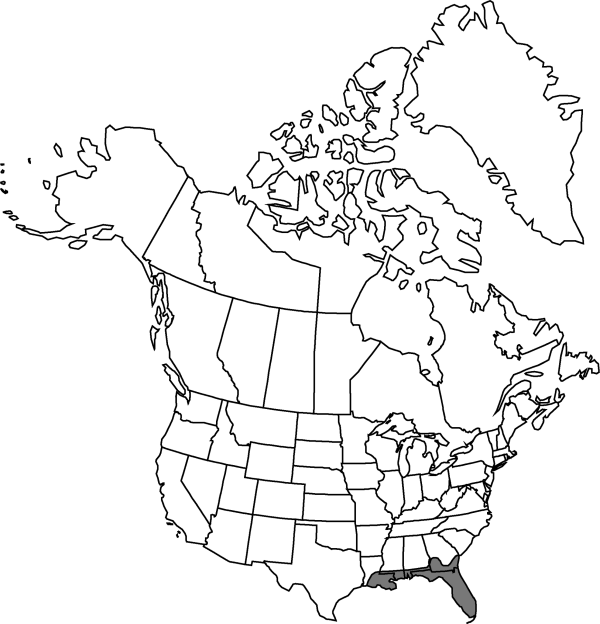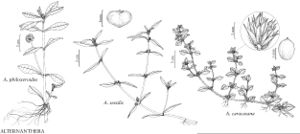Alternanthera sessilis
Cat. Pl. Hort. Monsp., 77. 1813.
Herbs, annual or perennial, 2–6 dm. Stems procumbent, pubescent in lines, glabrate. Leaves sessile; blade elliptic to oblong or oblanceolate, 1.2–5 × 0.5–2.2 cm, apex obtuse to acute, glabrous. Inflorescences axillary, sessile; heads white, subglobose or ovoid, 0.5–1.1 cm; bracts keeled, ca. 1/2 as long as tepals. Flowers: tepals white, ovate to lanceolate, 2–3.5 mm, apex acuminate, hairs not barbed; stamens 5; anthers 3–5, globose; pseudostaminodes subulate, margins laciniate. Utricles included within tepals, sides exerted in mature fruit, greenish stramineous, obcordate, 1.3–1.7 mm, apex retuse. Seeds lenticular, 0.9–1.1 mm.
Phenology: Flowering summer–early fall.
Habitat: Wet disturbed areas
Elevation: 0-20 m
Distribution

Introduced; Ala., Fla., Ga., La., Mexico, West Indies, Central America (Belize, Costa Rica, Guatemala, Nicaragua, Panama), South America, Africa, Asia.
Discussion
Alternanthera sessilis is reported from Maryland, Mississippi, South Carolina, and Texas, but I have seen no specimens from these states.
Selected References
None.
